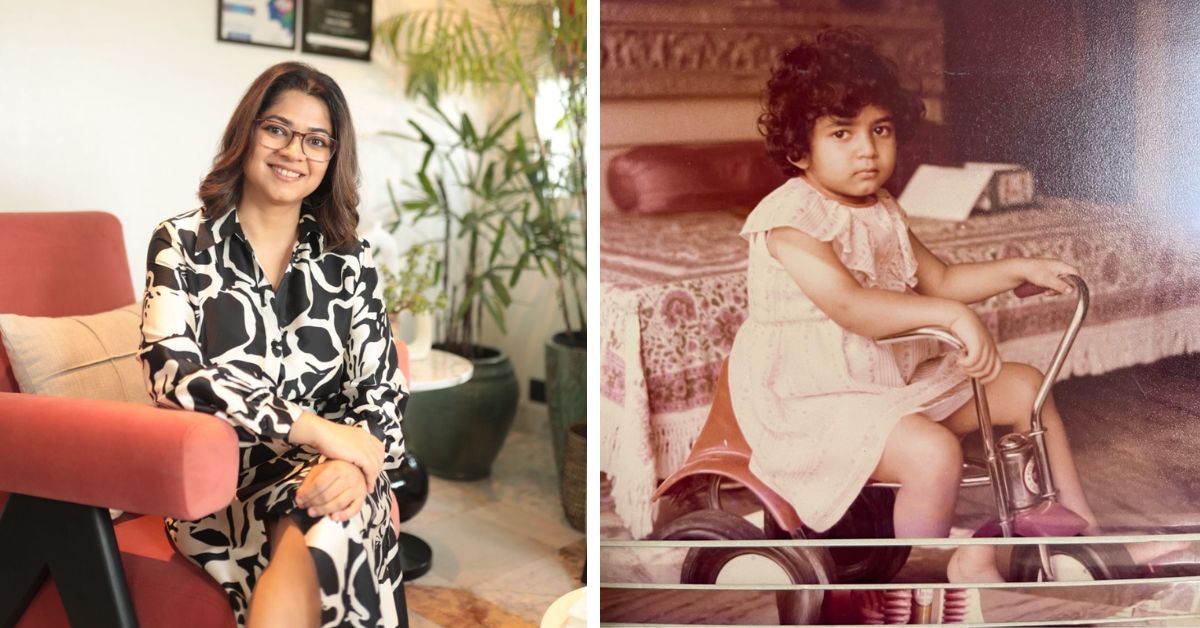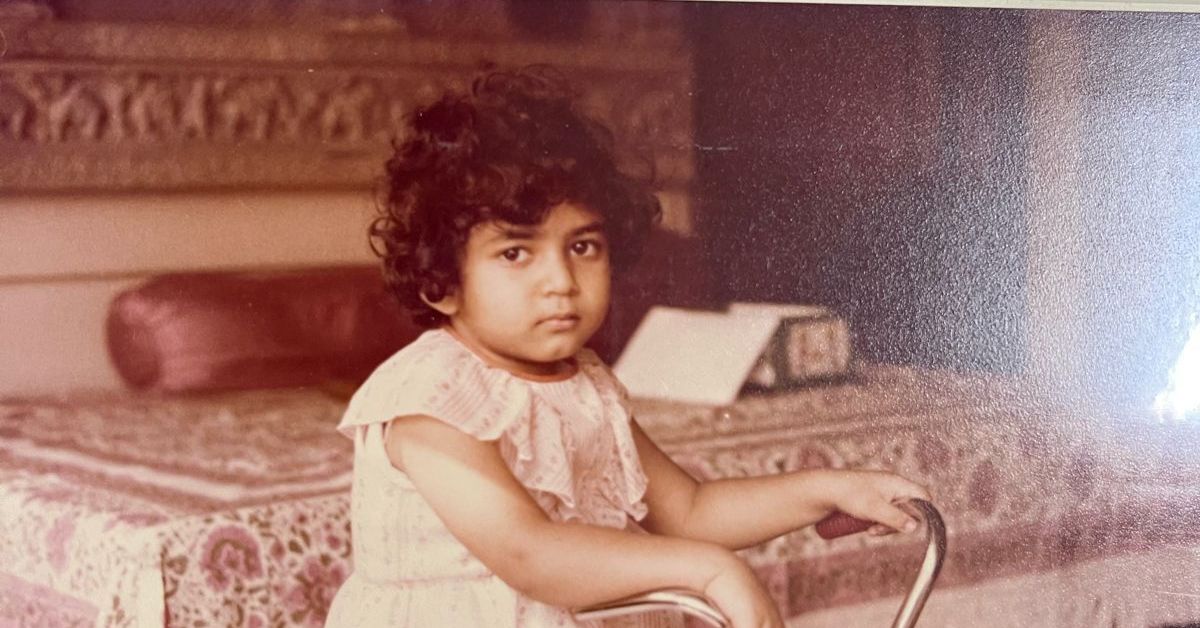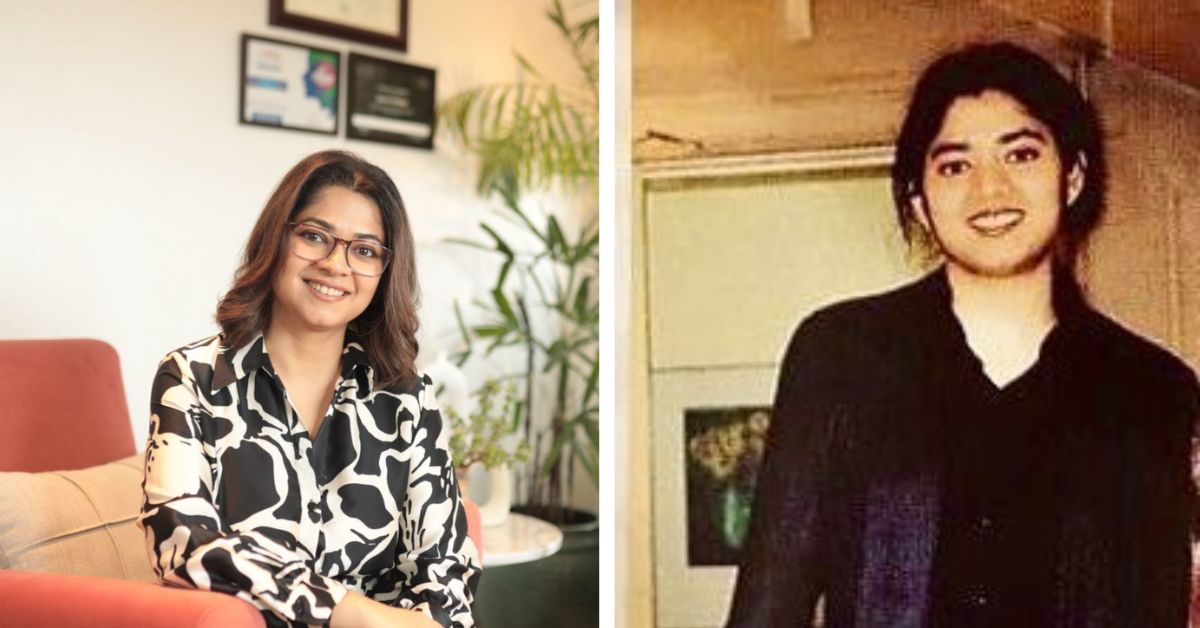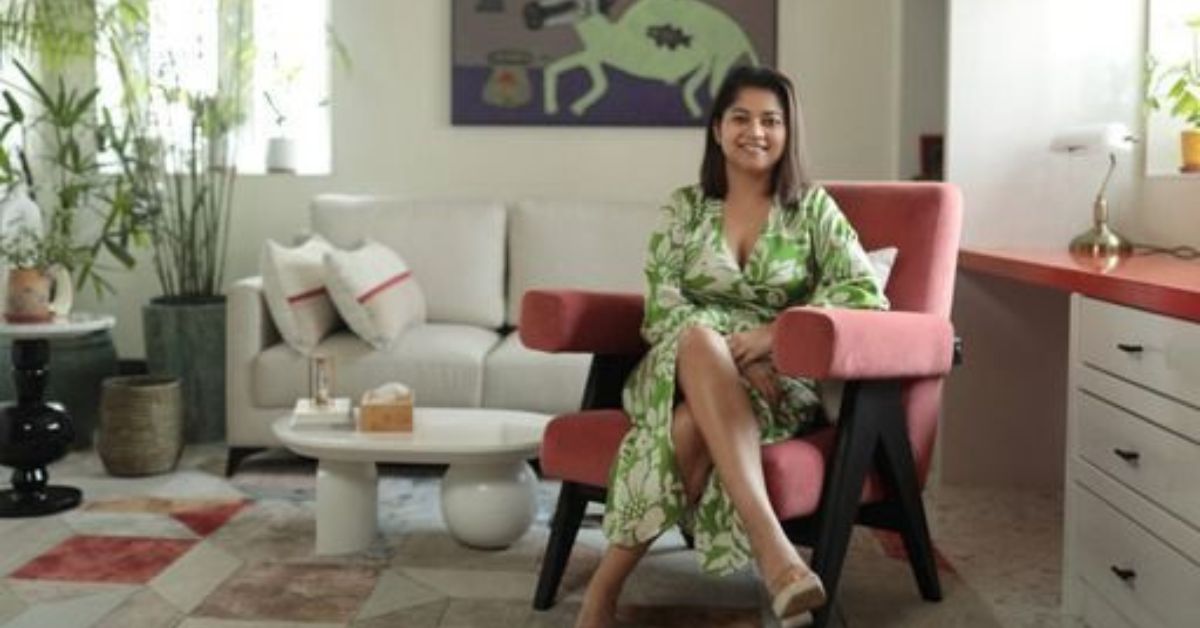I Was Abused as a 13-YO & Here’s What Parents Should Learn About Childhood Trauma
Mansi Poddar, a psychologist and therapist, survived domestic violence, molestation and abuse. With her Heal Grow Thrive Foundation, she helps survivors heal from their trauma. In a candid conversation, Mansi shares her experiences and the lessons she learned.

Trigger Warning: Mentions of sexual abuse, violence, depression, and eating disorders
At the core of human existence, our experiences shape us. The personality formed in our formative years is a gift from those we encounter, leaving lasting impressions. When these experiences involve abuse and violence, they penetrate deep, becoming part of a person’s essence. Such memories can hinder emotional growth, trapping individuals in cycles of fear and self-doubt.
At 43, Mansi Poddar still wrestles with the traumas of her early life, haunting her and leading to toxic cycles.
“I endured a troubled early life filled with abuse and violence. I had no one to turn to back then. As part of my healing process, I am working towards creating an ecosystem where no one feels unheard,” she says.
Now a psychotherapist and the founder of the Heal Grow Thrive Foundation, Mansi engages in heartfelt conversations to open up about her healing journey with The Better India.
‘Abuse became my normal’
Born and raised in Kolkata, Mansi’s childhood was challenging, to say the least. “Growing up in Kolkata in a joint family setup was challenging, but it became even harder when my grandfather passed away,” she says.
“My father’s side of the family wanted my grandmother to go to Banaras [Varanasi] and live her days as a widow. My grandmother had to essentially fight for her survival and place in the house,” she recalls.
While Mansi was too young to perceive the patriarchy her childhood home was seeped in, she recalls her grandmother’s suffering. “For a child, this is a traumatic experience. Even today, I try to break down that instance and understand how it affected me as a person,” she says.
Growing up in a patriarchal home came with its set of challenges, but things started to get tougher as Mansi grew up. “I got my periods early and so my body started to change. I looked older and different from girls my age,” she recalls.

But the first time Mansi was molested, she says, was at the age of four. “I didn’t realise it was abuse at that young age. In those days, children were not taught about good touch and bad touch,” she says.
At then when she was 13, Mansi says she was molested by a house help. “I did not know what to do. It was not a stranger exactly, and I did not know who to turn to,” she says. “While I did turn to my mother for help, I was too scared to open up about it to anyone else, so I pushed myself into a shell.”
The abuse continued and Mansi kept suffering in silence.
“School was no better,” she says. “All this trauma and abuse was affecting my growth. I was not good at academics and I did not have a lot of friends. All I had in school was bullies and abuse.”
The impact of the constant abuse led her to believe that it was something she deserved. “Abuse became my normal and comfort zone. These experiences primed me for dissociation. Even now, I can easily slip into a mental space where I’m not fully present, where my body and mind disconnect. This dissociation is one of the lasting effects of abuse. Surprisingly, it led me towards more such instances in my life,” she says.
Finding myself and breaking the cycle
“I remember in school, I tried to reach out to a teacher when I was 15. It took me a lot of strength to open up, but she did not believe me. She judged me for being a poor student and thought I was just making excuses,” she recalls.
“It was a disaster. The rejection pushed me deeper into isolation. I remember having a full-blown breakdown in school. Things were bad and every small abuse would push me closer to the edge.”
Talking about how these experiences affected her as a young adult, she says, “Unconsciously, we tend to repeat what’s familiar to us. Growing up in an environment that wasn’t conducive to a healthy childhood, I found myself mirroring this chaos in my relationships, particularly in friendships.”
“I eventually married a partner who proved to be extremely abusive. The abuse began during my teenage years when I met him in college. Initially, it started subtly, perhaps with a mild action like him pressing my neck, pushing me, or tightening his grip. Strangely, I never identified it as abuse because, for me, these actions were normalised,” she adds.

Pondering how the mind of an abuse survivor works, she says that it would lead her to believe that everything was her fault. “Whenever someone treated me wrongly, I would always find ways to justify it. I thought that maybe they’re struggling, perhaps something is going on for them, or maybe I inadvertently offended them,” she says.
Mansi recalls how she needed someone to tell her that this was abuse. “I had a few people and friends that would constantly remind me of how abusive my relationship was. I needed to get out of it, but for years, I did not know how,” she says.
In 2007, she decided to finally take the leap and divorce her husband. “Things were getting out of hand and I decided to leave. It was during this time that I decided to take therapy,” she says.
Taking therapy changed her life in many ways. “It was for a brief time, but it was a huge step for me. I was able to express what was inside for so long. This was, in a way, the starting point for my journey towards betterment,” she says.
While in therapy, Mansi also realised how she was a good listener to other people. “I am not sure if it was because I was going through so much that made me empathetic to people’s suffering. People would come to me and tell me about their issues. I would never give them advice but always listened to them attentively,” she says.
Later she decided to go to NYU and study psychology. “I applied for a master’s and after graduating, I started a small practice in the US. In 2012, I decided to come back to India with my current partner,” she says.
Healing is not linear

Trauma holds in your body in different ways and comes out in outbursts. Taking therapy and studying psychology helped Mansi understand herself better. “It was only when I delved into the study of trauma and immersed myself in that work that I became aware of the extent of trauma I carry within me. It manifested as rage outbursts, struggles with substance abuse, and eating issues,” she says.
“Trauma manifested in various ways in my life. In my 20s, I battled an eating disorder, struggling with bulimia. I was battling something, I did not even know existed,” she adds.
Returning home, she realised how there were so many people who went through the same things as her. “I realised that what happened to me is more common than you can imagine. I wanted to help them heal.”
Therapy was not very popular back then and she found it very difficult to get a job anywhere. “I noticed that while there were a lot of graduates of psychology, there was no place for them to start their careers. This is how the Heal Grow Thrive Foundation came into being. Since we are self-funded, the therapy is done for a small fee but what we focus on is healing,” she says.
With a fleet of 20 young and budding therapists, she has helped over 500 survivors so far.
A patient of Mansi who prefers to be anonymous says, “When I first talked to Mansi, she created a safe space for me. It was a space where I could really be ‘me’. I did not understand how much I needed the help until I took it. The best thing is that she focussed on the ‘why’ instead of turning to medication. Why was I feeling a certain way, why is the trauma so deeply rooted, and what I can do to help myself? I am glad that I took the step for myself.”
Mansi shares, “The main focal point of my practice is to heal by processing things. As a survivor and a psychologist, I know how taking medicine can feel like a way out. However, I sincerely believe in trying everything in my power before referring patients to a psychiatrist. We believe in creating a safe space for the trauma survivor and helping them heal.”
Talking about how healing is not linear, she adds, “Even though I am an adult out of that house and all the trauma it brought, I still get stuck in toxic cycles. I am happy that I am away from it, but I still believe that healing is not linear and you can always slip back. I still have the ability to isolate myself and disassociate from my body.”
“But what is important is the first step towards healing. Once you reach there, you will start to get better,” she says.
To anyone who is suffering as she did in the past, Mansi says, “I believe, more than anything, that parents should read and comprehend the importance of not stigmatising mental health. It’s crucial for parents to advocate for their kids, not necessarily through confrontations with teachers and others, but by genuinely sitting down with their children and understanding their perspective.” If you found our stories insightful, informative, or even just enjoyable, we invite you to consider making a voluntary payment to support the work we do at The Better India. Your contribution helps us continue producing quality content that educates, inspires, and drives positive change. Choose one of the payment options below for your contribution- By paying for the stories you value, you directly contribute to sustaining our efforts focused on making a difference in the world. Together, let’s ensure that impactful stories continue to be told and shared, enriching lives and communities alike. Thank you for your support. Here are some frequently asked questions you might find helpful to know why you are contributing?

She adds, “My message is directed towards parents, teachers, and adults in general, urging them to become more trauma-informed. It’s essential to recognise what might be traumatic for a child and to avoid hindering their access to mental health care.”
(Edited by Pranita Bhat; All pictures courtesy: Mansi Poddar)
This story made me
- 97
- 121
- 89
- 167













